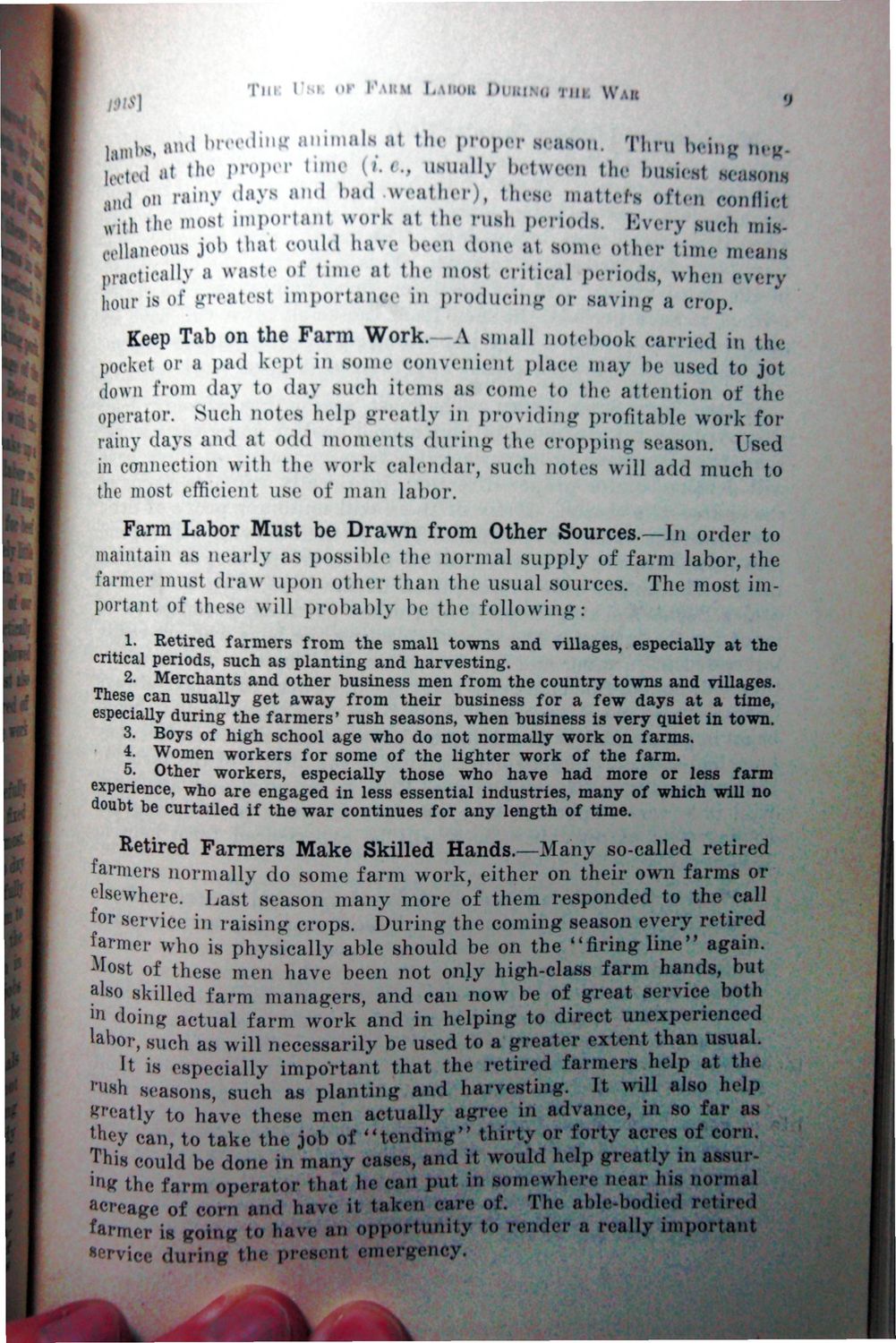| |
| |
Caption: War Publications - WWI Compilation 1923 - Article 28
This is a reduced-resolution page image for fast online browsing.

EXTRACTED TEXT FROM PAGE:
/.-»>'1 K linilis ;111<| Till I • «»*" l ' \ " M IJAIM'I. Ill M M , m i W .,( « > Nn breeding animals at th« proper season. Thru being neg. I(',,,a «t the proper time (i.«., usually h.iu.cn the busiest seasons ;|11(I on rainy days and bad woail.ni, these matters often conflict with tlio most important work at ilie rush periods. Every such miscellaneous job thai could have been done at some other time means practically a waste of time at the most critical periods, when every hour is of greatest importance in producing or saving a crop. Keep Tab on the F a r m Work.—A small notebook carried in the pocket or a pad kept in some convenient place may be used to jot down from day to day such items as conic to the attention of the operator. Such notes help greatly in providing profitable work for rainy days and at odd moments d u r i n g the cropping season. Used in connection with the work calendar, such notes will add much to the most efficient use of man labor. Must In order to maintain as nearly as possible the normal supply of farm labor, the fanner must draw upon other than the usual sources. The most important of these will probably be the following: 1. Retired farmers from the small towns and viUages, especiaUy at the critical periods, such as planting and harvesting. 2. Merchants and other business men from the country towns and villages. These can usually get away from their business for a few days at a time, especially during the farmers' rush seasons, when business is very quiet in town. 3. Boys of high school age who do not normaUy work on farms. 4. Women workers for some of the lighter work of the farm. 5. Other workers, especiaUy those who have had more or less farm experience, who are engaged in less essential industries, many of which wiU no doubt be curtailed if the war continues for any length of time. Retired Farmers Make w,,uu I to ftMS —Many so-called retired ^ nuriiiauy cio some i a r m WOIK, euner cm uieir uwn j.aimo ui elsewhere. Last season many more of them responded to the call for service in raising crops. During the coming season every retired farmer who is physically able should be on the "firing l i n e " again. class also skilled farm managers, and can now be of great service both "i doing actual farm work and in helping to direct unexperienced lat >or, such as will necessarily be used to a greater extent than usual. It is especially important that the retired farmers help at the •ush seasons, such as planting and harvesting. It will also help Neatly to have these men actually agree in advance, in so far as t} iey can, to take the job of " t e n d i n g " thirty or forty acres of corn. This could be done in many cases, and it would help greatly in assuring the farm operator that he can put in somewhere near his normal acreage of corn and have it taken care of. The able-bodied retired farmer is going to havs an opportunity to render a really important service during the present emergency. k L
| |